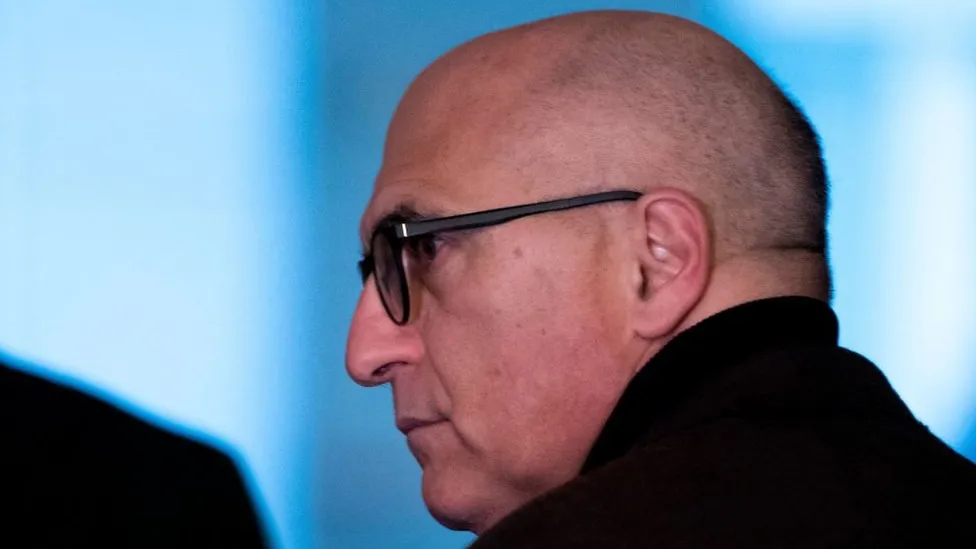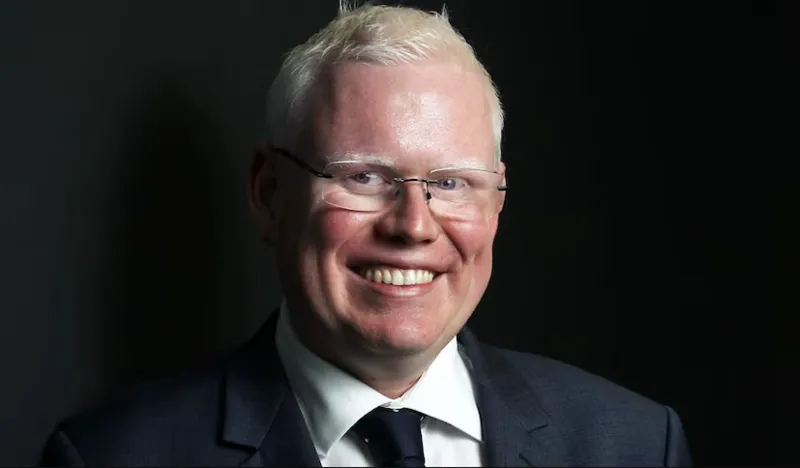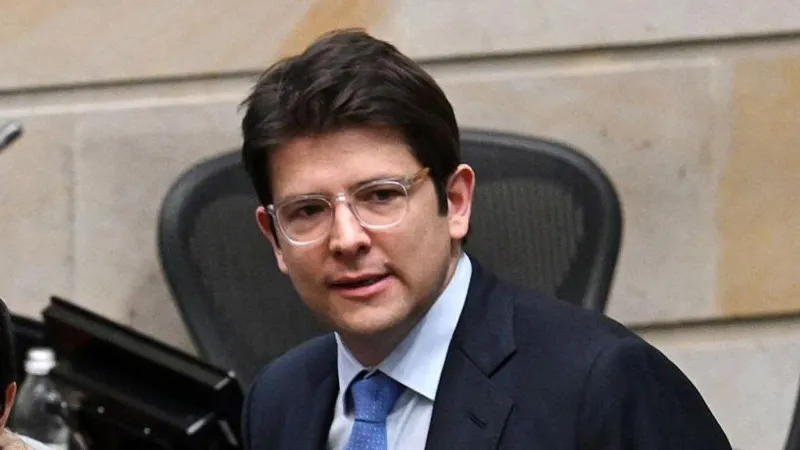Qatargate: Andrea Cozzolino's lawyer speaks to the BBC
It's the corruption scandal stinking up the EU.

Suitcases filled with euros seized in Brussels flats. A number of MEPs locked up behind bars awaiting trial.
And now a battle over extradition between Belgian investigators and Italian judges.
Andrea Cozzolino, an MEP for Southern Italy since 2009, stands accused of taking bribes from foreign countries to influence the European Parliament - allegations he denies.
He is one of four current and former MEPs wrapped up in the Qatargate investigation, which centres around allegations that Qatar and Morocco paid a group based in Brussels to sway EU lawmakers.
Qatar has vehemently denied any wrongdoing, while Morocco has hit back at "judicial harassment" and "media attacks".
On 11 April judges will decide whether Mr Cozzolino, 60, will leave house arrest in the southern Italian city of Naples and be taken to a Belgian prison under a European Arrest Warrant.
But his lawyer has told the BBC the prosecutors are trying to "see if he cracks", and demands more details about the allegations against Mr Cozzolino - as well as reassurances his client's health won't suffer in a Belgian jail.
Fighting extradition
A parliamentary report in January said Mr Cozzolino was suspected of "protecting the interests of foreign states in the European Parliament... in exchange for sums of money".
Days later, prosecutors issued a European Arrest Warrant for the MEP. He was briefly taken into custody before being placed under house arrest.
But his lawyer Federico Conte told the BBC the warrant was "completely vague, partial and sometimes it even lacks transparency".
"Where did the corruption take place? When? Through what means - cash or bank transfers? From whom?" he said. "If the Belgian prosecutor has the proof of Mr Cozzolino's guilt, why don't they show it?"
"Our suspicion is that they think in jail Cozzolino... would be more inclined to confess or accuse others."
The judges in Naples set to decide on Mr Cozzolino's possible extradition next Tuesday have twice postponed their ruling already, as they await more information from Belgian prosecutors.
Mr Conte has also accused the Belgian prison service of being overcrowded, with "lacking and obsolete" facilities. According to the lawyer, Italian judges allowed Mr Cozzolino to stay at home because he has heart problems - and Mr Conte does not believe he would receive proper care in a Belgian prison.
The lawyer cited a 2022 Council of Europe report which highlighted "overcrowding" and "clearly insufficient" health services in four Belgian prisons, four years after the body called for Belgium to improve conditions for inmates, particularly at times when prison staff are on strike.
But Alberto Alemanno, professor of EU law at HEC Paris, dismissed Mr Conte's allegations as "fictitious". He accused him of "leveraging the health status of Mr Cozzolino in order to somehow tarnish... a very difficult investigation across Europe", arguing they were a delaying tactic.
"[These allegations] sound very useful to satisfy the private interest of an individual who is currently suspected of major breaches of the rule of law," he told the BBC.
Mr Alemanno described European Arrest Warrants as the "bread and butter" of European justice, and said Mr Cozzolino's attempts to challenge it were "very unusual" - adding that the Belgian investigation so far into the corruption allegations had been "extremely thorough", and that Belgian prisons compared favourably with others around Europe.
"[The prosecutors] are following the rules of the game, which basically stem from the European Court of Human Rights case law," he said.
"We're seeing a bit of a David and Goliath situation in which the Belgian authorities seem to find a lot of pushback from the political system, from the institutional system, and from third countries at the origin of this case."
After the interview with Mr Conte the BBC sent all his allegations to the prosecutor's office in Belgium that is leading the investigation. A spokesman for the prosecutor twice refused to comment.
The BBC has also reached out to the Belgian prison service for comment but has not yet received a response.
What is Qatargate?
The investigation began in December when Greek MEP Eva Kaili was arrested along with three others on suspicion of corruption and money-laundering. She denies the charges.
A Financial Times article says on the day of her arrest Ms Kaili stuffed €300,000 ($326,000; £264,000) into a suitcase along with nappies and baby food for her daughter. The two-year-old child is now only allowed to visit her jailed mother twice a month.
The police have seized €1.5m in cash since the start of the investigation, in raids across Belgium, Italy and France.
Since then two more MEPs - Mr Cozzolino and Belgian politician Marc Tarabella - have had their legal immunity stripped by the European Parliament. Mr Tarabella, who also denies wrongdoing, is now in a Belgian prison awaiting trial.
Investigators believe a criminal network took bribes from Qatar and Morocco in return for influencing the European Parliament in Brussels.
Former Italian MEP Pier Antonio Panzeri allegedly led that network. He later agreed to a plea deal with prosecutors - agreeing to reveal everything about the scheme in exchange for a reduced sentence of one year in custody. Charges against his wife and daughter were also dropped as part of that agreement, and Mr Panzeri has since moved to house arrest.
The BBC has seen leaked transcripts from interviews that investigators held with Mr Panzeri in February.
According to these documents, the former politician told them that Qatar donated €250,000 each to Mr Cozzolino and Ms Kaili for their electoral campaigns.
He also allegedly said Francesco Giorgi - who worked as a parliamentary assistant for Mr Cozzolino, and who is the partner of Ms Kaili - distributed the Qatari cash.
Mr Giorgi has reportedly confessed to acting as the bag man for the network. On his LinkedIn page, he lists himself as co-founder of the NGO Fight Impunity - a group set up by Mr Panzeri in 2019 to promote human rights.
Fight Impunity shares a Brussels office building with another group, named No Peace Without Justice. Niccolò Figà-Talamanca, the secretary general of the latter NGO, was initially arrested by investigators but was then released in February. He denies any wrongdoing.
-bbc






